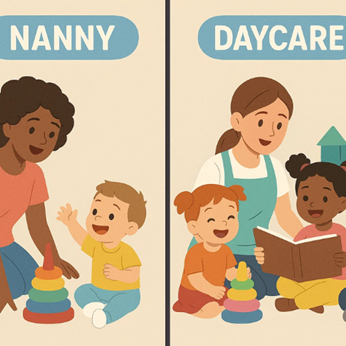How Much Sleep Do Babies, Kids, and Teens Need?

Sleep is a fundamental pillar of health, especially for growing children and teenagers. It plays a critical role in physical growth, mental development, and emotional well-being. As a parent, understanding how much sleep your child needs at each stage of their development can help ensure they grow up healthy and happy.
Sleep Requirements by Age Group
1. Newborns (0-3 Months)
- Sleep Duration: 14-17 hours per day
- Key Insights: Newborns have irregular sleep patterns and wake frequently for feeding. It’s normal for their sleep to be spread across day and night.
2. Infants (4-11 Months)
- Sleep Duration: 12-15 hours per day
- Key Insights: As babies grow, they begin to consolidate their sleep, with longer stretches at night and 2-3 naps during the day.
3. Toddlers (1-2 Years)
- Sleep Duration: 11-14 hours per day
- Key Insights: Most toddlers nap once or twice a day. Consistent bedtime routines help them settle into a regular schedule.
4. Preschoolers (3-5 Years)
- Sleep Duration: 10-13 hours per day
- Key Insights: Afternoon naps may taper off during this stage. It’s crucial to establish consistent sleep hygiene practices.
5. School-Age Children (6-12 Years)
- Sleep Duration: 9-12 hours per day
- Key Insights: With school, homework, and extracurriculars, sleep can often take a backseat. Parents should prioritize a regular bedtime to prevent sleep deprivation.
6. Teenagers (13-18 Years)
- Sleep Duration: 8-10 hours per day
- Key Insights: Teens often experience a natural shift in their sleep-wake cycle, staying up late and sleeping in. Encourage a balance between their biological clock and daily commitments.
Why Sleep Matters
- Physical Growth: Growth hormones are primarily released during deep sleep, making adequate rest vital for children and teens.
- Cognitive Development: Sleep supports memory, learning, and problem-solving skills.
- Emotional Regulation: Well-rested children are better equipped to handle stress, anxiety, and mood swings.
- Immune Health: Adequate sleep strengthens the immune system, reducing susceptibility to illnesses.
Tips for Healthy Sleep Habits
- Set a Routine: Consistent bedtimes and wake-up times help regulate the body’s internal clock.
- Limit Screen Time: Avoid screens at least an hour before bedtime to prevent disruptions in melatonin production.
- Create a Sleep-Friendly Environment: Keep the bedroom dark, quiet, and cool to promote better sleep.
- Monitor Caffeine Intake: For older kids and teens, limit caffeine consumption, especially in the evening.
Recognizing Sleep Issues
If your child or teen is consistently struggling to fall asleep, waking frequently, or experiencing excessive daytime fatigue, it may be time to consult a healthcare provider. Addressing sleep issues early can prevent long-term effects on their health and development.
Final Thoughts
Sleep is more than just rest; it’s a cornerstone of healthy development for babies, kids, and teens. By ensuring your child gets the right amount of sleep for their age, you’re setting them up for success in every aspect of life. Establish healthy sleep habits today to nurture a brighter, healthier future for your little ones.
Take the next step toward your goals
Share your requirement and find the best care providers in your area
-
Looking for a caretaker’s job? Build your profile and get in touch with families in your vicinity.
-
Discover nannies, babysitters, cooks, housekeepers, pet sitters, and elder care under one roof.
-
Get all the support you need to run a successful care center.
-
Search for appropriate centers near you depending on your needs.
Care Corner Insights: Blog Library

Nanny vs. Daycare in Naperville, IL: What Works Best for Indian Working Couples?
Hey Naperville Parents! Balancing work and family life is no small feat—especially for Indian working couples trying to juggle careers, household responsibilities, and parenting. One of the biggest decisions you’ll face? Choosing between a nanny or

Housekeepers in Sugar Land, TX: Deep-Cleaning Checklists for Indian Homes
Housekeepers in Sugar Land, TX: Deep-Cleaning Checklists for Indian Homes Indian cooking = flavor + spices + love… but also oil splatters and stubborn stains. Time to reset! Degrease stovetops, chimneys, and exhaust fans. Scrub countertops, tiles,

12 Easy After-School Snack Ideas for Kids Who Get Hungry Quickly
School’s out, and the hunger hits hard! If your little ones come home ravenous and ready to raid the kitchen, you’re not alone. After-school snack time is prime time for refueling, recharging, and maybe even sneaking in a little nutrition. So here ar

Vegetarian Home Cook Services in Sunnyvale, CA: North & South Indian Meal Prep for Busy NRIs
Between work, family, and daily responsibilities, finding time to cook fresh meals can be difficult. That’s when a vegetarian home cook service in Sunnyvale makes life easier—bringing authentic North and South Indian dishes straight to your table. T

Hiring a Live-In Nanny in Plano, TX: A Practical Guide for NRI Households
For NRI families living in Plano, TX, raising children while managing work and household responsibilities can feel overwhelming. Many parents find that hiring a live-in nanny provides the right balance of support, convenience, and cultural comfort. U

Daycares in Fremont, CA for Indian Toddlers: Curriculum, Food Policies & Waitlists
You’ve probably met them — the parents at the park chatting about Montessori vs. play-based learning while handing their toddler a homemade paratha. The ones who ask every daycare in Fremont if they serve vegetarian meals. And yes, the ones who have

Babysitters in Jersey City, NJ for NRI Parents: Last-Minute, Weekend & Evening Options
You’ve probably seen them — the parents juggling grocery bags in one hand and a phone call to grandma in India in the other, while trying to keep their toddler from running into the road. The ones who cancel dinner plans because the babysitter bailed

Best Nanny Services in Edison, NJ for Indian Families: Costs, Language, and Cultural Fit
Edison, NJ, is home to one of the largest Indian communities in the U.S., and finding a nanny here often means looking for more than just childcare skills. For Indian families, cultural understanding, language fluency, and traditional values play a b

What Is Helicopter Parenting? How It Affects Children and Ways to Avoid It
You’ve probably seen them. The parents at the playground who shadow every move, wiping invisible germs off the slide before their child touches it. The ones who fill out job applications for their teens. And yes, the ones who email college professors

Are Weighted Blankets Safe for Children? Pros and Cons Explained
Weighted blankets have become a cozy trend in recent years. From helping adults sleep better to calming anxiety, they’ve earned a spot in many households. But when it comes to kids, especially the little ones, parents often ask: Are weighted blankets